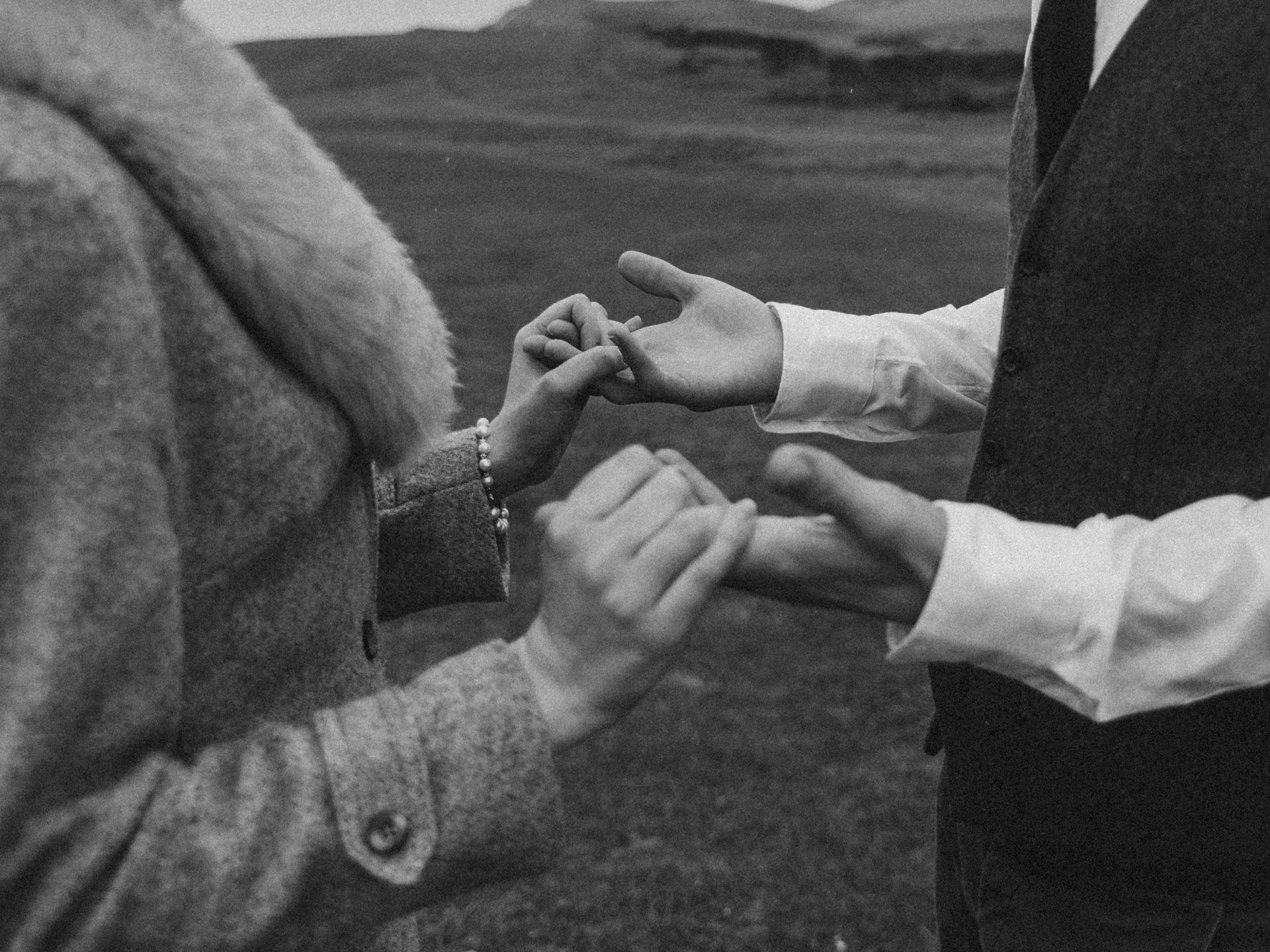Ruth
Ruth 3

I want to mention providence again today. The word comes from a combination of two Latin words, pro and video. Provideo. Pro means before, video means to see. So the combination of those two words, provideo, is the idea of seeing something beforehand. God can see everything before it happens. He knows what's going to happen. God is all knowing and that includes the future. And because he knows the future he can providentially, through natural circumstances, arrange so that things kind of, coincide.
Like last night I was speaking at a church, and a guy who’d been to WBH was there and spoke to me about recovery. It the right place and the right timing for him to have a talk about recovery with me there.
So it's God's seeing in advance and then working those things out for the good. Don't confuse God's providence with miraculous events. Miraculous events are not natural events. I know we use the term lightly like, oh every time a baby is born, that's a miracle. No it's not. It happens every day. It's part of natural law. It happens across several species. So these are natural laws and natural occurrences. It is not miraculous. Oh, a sunrise and a sunset is miraculous. No it's not. It happens every day.
Turning water into wine - that's a miracle. A miracle is when God contravenes natural law, interrupts natural law with a supernatural event. And God from time to time in history works miraculously.
But most often, God works ‘providentially’. He weaves things together just so. As you look back on your life, I bet you can go, man. I met that person, then that happened, and think well if that hadn’t happened, then this wouldn't have happened, and then-- right? You can look back and you can see it. You don't see it at the moment.
It also doesn’t mean that things are perfect. It doesn’t mean there’s no heartache. But I look back and say, well if I hadn’t gone to Uni with some Salvo’s, I would not have done my uni placement at The Salvation Army Outreach Service in Kings Cross, and I might not have gotten the job there years later and I might never have met Bob.
We can look back and we can see the hand of God. So we can here in the book of Ruth. First of all, there was an issue of timing. Back in chapter 1 of this book, verse 22, it says that Naomi and Ruth came to Bethlehem at the time of the barley harvest. Now the barley harvest is late April, beginning of May. And so you have the right timing. It just happens to be the time of the barley harvest. And there also happens to be a law in Israel that if you're poor, you can glean in anybody's fields so that you can get some of the produce and take it home.
And you have rich landowners and poor people in the fields together. And the right place at the right time. In 2:3, “So she went out, entered a field and began to glean behind the harvesters. As it turned out, she was working in a field belonging to Boaz". As it turned out…Ruth didn’t plan it, she didn’t understand the impact of being at this particular field.
All of these things just happened. God is weaving them together. So on the horizontal, things look haphazard. Crazy. Scary. From the vertical, they're providential. You may not know what God's doing. But you don't need to know what God's doing. And God doesn't owe us an explanation of what he's doing. It’s about trust. And you believe all things work together for good to those who love God and are called according to His purpose.
So that takes us to chapter 3. And it says, "One day Ruth’s mother-in-law Naomi said to her, ‘My daughter, I must find a home for you, where you will be well provided for.”
Now I love Naomi. You're going to see she's very, very practical and very busy. But what she'll discover is though she may be busy, God is busier. And he's already got this thing planned and is utilising the drive of Naomi to get his will accomplished. So we come now to a time of after the harvest. After the harvest is gathered in, after the grain, after the barley is collected, there is a time of winnowing. They winnow it to separate the chaff from the wheat.
And so it says in verse 2, " Now Boaz, with whose women you have worked, is a relative of ours. Tonight he will be winnowing barley on the threshing-floor. "
Threshing floors were elevated areas out in the fields or near the fields where they would collect the produce from. They would take it to an elevated threshing floor, to catch the afternoon winds. They used a five-pronged kind of a forked rake. And they scoop it up, throw it up in the air, the chaff then blows away, and the kernel falls down to the ground. That's how they winnow. They would winnow it in the evening time when the winds come by.
Boaz is there in Bethlehem on the threshing floor and he is winnowing on the threshing floor. Verse 3, Naomi says to Ruth, "Wash, put on perfume, and get dressed in your best clothes. Then go down to the threshing-floor, but don’t let him know you are there until he has finished eating and drinking.”
I was out at a Multicultural Gala on Friday night. I was in my cultural costume…a uniform! But I was talking the woman sitting beside me who came from India. She told me her whole story of coming to Australia with her husband. I said to her, do you mind me asking if it was an arranged marriage? She looked at me like I was crazy and said ‘of course’. She went on to say that though he was her parents choice, she had a friend who knew him independently and verified her was a good man. Her parents were match making and here we see Naomi in a similar role. Put on something nice says Naomi and go see him.
Somebody once said there's three kinds of people. There's the person who makes things happen, then there's the person who watches things happen, then there's the person who has no idea what's happening. Naomi is in the first category. She's the kind to make things happen. She's very practical. She knows that Boaz is interested. Ruth has stated that he acts interested. He's done favours for her, gone out of his way to speak to her. And so she goes, OK. So Naomi is like, let’s take the next step.
So be pro-active in life. Look this is my view. But I think sometimes I’ve prayed and struggled with what does God want so much that I’ve become stuck. Don't be afraid to be pro-active. And though you make plans and you are practical, also be flexible, because you don't know what God is doing behind the scenes.
Verse 4, "When he lies down, note the place where he is lying. Then go and uncover his feet and lie down. He will tell you what to do.”
This is amazing to me. Most of us would say ‘excuse me, what do you want me to do?’ Uncover his feet? He'd been working in the fields all day. I'm not going to uncover his feet. But Ruth, she’s like if you want me to do that, I’ll do it.
Verse 7 & 8, " When Boaz had finished eating and drinking and was in good spirits, he went over to lie down at the far end of the grain pile. Ruth approached quietly, uncovered his feet and lay down. In the middle of the night something startled the man; he turned – and there was a woman lying at his feet!”
Now when they would winnow, they would have a feast in the evening celebrating all that they have collected, there was a huge pile or several huge piles, and the workers would sleep around the pile of barley or wheat with their head at the centre and their feet sticking out like spokes on a wheel, to guard what they had collected. There were thieves around and they had to guard what they had harvested. So that's why they slept guarding the barley.
I find Naomi’s suggestion extraordinarily bold. I think if any person approached another in the middle of the night, moved their blanket and lay down next to them, it’s sending a strong message of something! And it took an enormous amount of courage and determination.
So there in the middle of the night Boaz is startled.
“‘Who are you?’ he asked. ‘I am your servant Ruth, she said. ‘Spread the corner of your garment over me, since you are a guardian-redeemer of our family.” (Verse 9). She’s kind of saying take me under your wing. She’s reminding him of his obligation to care for her. And basically, Ruth is making a marriage proposal in the middle of the night. She's proposing marriage to him, but it is based upon a law.
This was the law around the issue of levirate marriage. It was a custom of the ancient Hebrews by which a man may be obliged to marry his brother's widow. Deuteronomy 25:5-10 prescribes that if a man dies without a son, that man’s brother has an obligation to take the deceased man’s wife as his own wife. The firstborn male produced by that marriage is to prevent the deceased man’s name from being blotted out (Deuteronomy 25:6).
So that's the idea of this. OK, back to our text, chapter 3, verse 10. " The Lord bless you, my daughter,’ he replied. ‘This kindness is greater than that which you showed earlier: you have not run after the younger men, whether rich or poor.”
Now this would indicate that Boaz was an older gentleman, between most guess 45 and 50 years of age, while where she was quite a bit younger. And he is commending her. You could have gone after a lot of young men. But you didn’t.
You see, if she’d married into another family, she couldn’t have taken her Mother in Law with her. When a woman was married, she had to leave her family behind and join her husband’s family. Where would that have left Naomi?
Even though this story begins to turn into a romance, between Ruth and Boaz, the real enduring love story is Naomi and Ruth. This is the sort of love that isn’t about butterflies in the stomach or heart palpitations. It’s the sort of love that makes the right decisions for children and sisters and brothers and friends and parents and in-laws. It’s not exciting, and often there’s a lot of sacrifice involved. I honour today all of you who love like this – who decide where to live because of your children, who look after ageing parents, who cared for friends and siblings. Like Boaz says – you could have gone off with someone else. But Ruth made a commitment to Naomi, she loved her, and that loved endured.
Verse 11 " And now, my daughter, don’t be afraid. I will do for you all you ask. All the people of my town know that you are a woman of noble character.”
There is a beautiful correlation to Jesus in all of this. It does require us to be found at the feet of Jesus, and then he redeems us, saves us, cares for us, draws us to himself, and takes us under his wing. It requires that we start at the feet of Jesus - it’s all about Him. God bless you.
Sermons For The Moment








